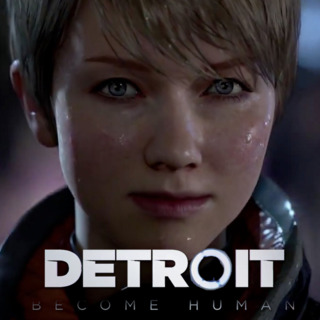Detroit: Become Human’s take on the human condition of, and around androids is one of many highs and lows of the game.
Set in a near-future Detroit, a company called Cyberlife produces androids to be used by humans as an additional servant for certain tasks, vices, and different needs. The game’s story takes shape from three different storylines. Each android’s story feels drastically different than one another. There are three stories; Kara and Alice’s on-the-run struggles to be free from a previous oppressor; Connor’s partnership with a human detective in order to track down other (deviant) androids; and Markus, who wants equal rights for androids, and will do anything in order to see it happen.
The latter of these stories is the weaker of the bunch. Both Connor and Kara’s stories are engaging in their own way’s. Markus’ story starts off strong, but as the game progresses the writing feels needlessly preachy, and in some aspects, cheesy. The strength of the writing and direction comes down on David Cage, as his two previous games have been hit-or-miss with target audiences. What Cage does with Detroit is something quite extraordinary. He makes you care for each android. Keep in mind Detroit borrows heavily from various sci-fi/cyberpunk lore such as Blade Runner and I-Robot.
Each androids’ story blends in with one another to create a unique story that mostly succeeds. The game is divided into chapters, each chapter slowly shapes the structure of the overall story. Unlike Quantic Dreams’ previous game Beyond: Two Souls, Detroit’s decision-making feels meaningful, as well as impactful. After every chapter, a branching flowchart displays all the decisions you made. Replay and experimentation are encouraged since each new choice that’s made adds credits which can be used to unlock various extras, such as artwork, music, and in-game models.
There’s also long-lasting consequences as well. Each android has a certain relationship he/she has to maintain. Kara’s relationship is with a little girl named Alice. Based on your motherly instincts, your decisions can bring her closer to you. With Markus, his relationship is between him and the people of Jericho – a safe-haven deviant community that he must lead. Your actions towards establishing a bond between the community and the human’s perception of you is a tough balancing act. An act which is tailored to the choices you make. Finally, Connor’s story is that of a buddy-cop film. One which pits the human veteran detective named Anderson with the Cyberlife deviant-hunter. Anderson’s troubled past makes for a rocky relationship between him and Connor. Though depending on how their interactions transform, their relationship may turn out to be something more.
As for gameplay, Detroit’s mechanics are minimal. Moving the characters around the environment can feel somewhat wooden and obtrusive. In a way, the movement reminded me of Telltale’s games. There’s heavy reliability on interaction with the environment. For example, Connor’s ability to re-create crime scene scenarios ala Arkham series’ detective vision is something quite neat. The majority, however, are minimal.
These interactions are as simple as pushing button prompts or touching the touch-pad on the DualShock controller. Depending on the difficulty chosen in the beginning – casual or experienced – QTE’s and other prompts will require more input. Given that there are a handful of action sequences found within, these QTE’s tend to be more complicated on the experienced difficulty. The more difficult these encounters become means the more likely chance of failure could happen. Each of the main character’s – and then some – can die if not careful. Meaning every dialogue choice, action-sequence, and scenario can have a lasting impact.
Detroit’s still very much a Quantic Dream’s game, for better and worse. There are character’s to become attached to, while the rest remain’s unchanged.

